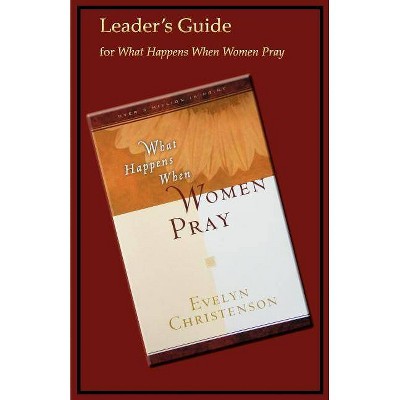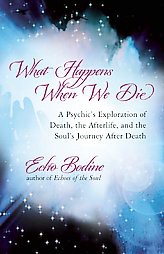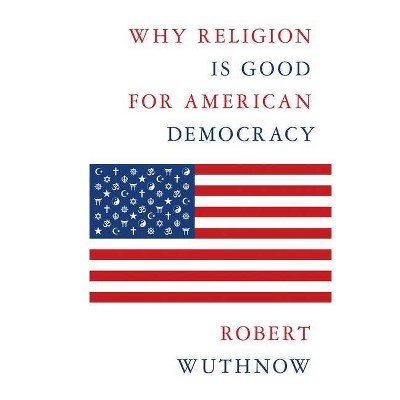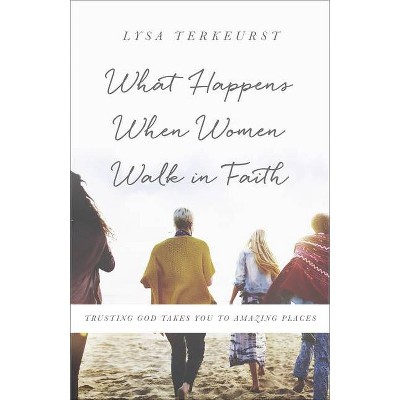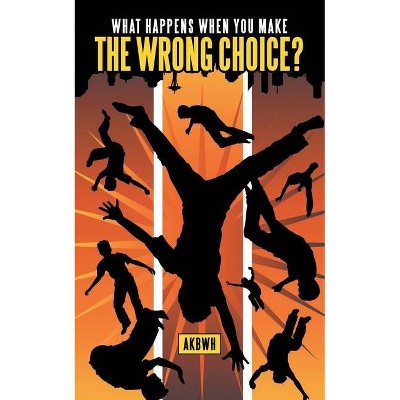What Happens When We Practice Religion? - by Robert Wuthnow (Paperback)
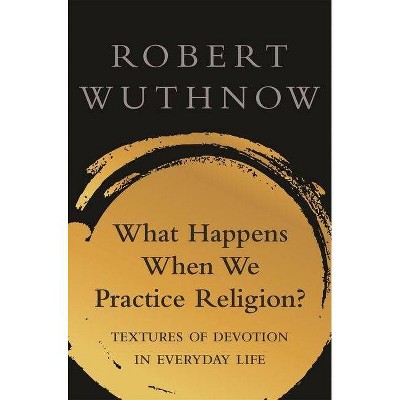
Similar Products
Products of same category from the store
AllProduct info
<p/><br></br><p><b> About the Book </b></p></br></br>"What do we mean when we say that people practice religion? How do scholars who seek to understand the realities of religious practice and its diverse manifestations do what they do? What conceptual tools do they have at their disposal? What have they learned over the last generation and which approaches promise to be of continuing benefit? In this book, intended as a contribution to an on-going conversation about the heuristic tools that can be brought to bear from multiple disciplines and approaches to the study of religion, Robert Wuthnow addresses these broad questions. Wuthnow notes that scholars of religion over the last few decades have increasingly shifted their gaze to religious practice. This has led (he argues) to a salutary shift away from sterile, essentialist arguments that grandly purport to explain what religion is and why it exists. As Wuthnow sees it, this shift has allowed scholars of religion to focus, with profit, on what people do and say and how they make sense of those acts and utterances when they practice religion. In a related salutary shift, religion scholars have by and large quit thinking about religion as if it were unlike everything else that people do. Having ceased to treat religion as something sui generis, religion scholars are thereby freed to make full use of the tools at their disposal in the human sciences. (Trained in a positivistic tradition of social science that aims at producing generalizations about human behavior that are both theoretically parsimonious and sweepingly ambitious, Wuthnow now concludes that this basic approach is unsuitable for grasping as diverse and multifarious a phenomenon as religious practice. He favors the use of a broad range of analytic tools drawn from multiple disciplines and approaches to the study of religion.) The five chapters of this book describe the central concepts and arguments now advancing the study of religious practice. Chapter 1, entitled "Theories", discusses the theoretical contributions associated with the aforementioned shift in religious studies to the investigation of religious practice. Chapter 2, "Situations", discusses how religious activities and experiences are shaped by the physical and temporal spaces in which social action occurs. Chapter 3, "Intentions", takes on an important topic that has proven difficult to study from a social science perspective. "Feelings" are the focus of Chapter 4, and the role of "Bodies" is addressed in Chapter 5. In all chapters Wuthnow draws the reader's attention in particular to the work of anthropologists, historians, social and cognitive psychologists, and sociologists who have studied a wide range of topics that illuminate significant aspects of religious practice such as its role in the construction of sacred space, in gendered social relationships, in educational /learning settings, in the visual and performing arts, in meditation, and in ritual. This is a book for scholars and students in religious studies, particularly those having been trained or being trained in methods of social science investigation of religious phenomena. This will include (of course) sociologists and anthropologists of religion. It will be a suitable adoption text for upper-level undergraduate classes and graduate methods seminars"--<p/><br></br><p><b> Book Synopsis </b></p></br></br><p><b>An exploration of the</b><b> interdisciplinary methods used to understand religious practice</b> <p/>Religion is commonly viewed as something that people practice, whether in the presence of others or alone. But what do we mean exactly by practice? What approaches help to answer this question? <i>What Happens When We Practice Religion?</i> delves into the central concepts, arguments, and tools used to understand religion today. <p/>Throughout the past few decades, the study of religion has shifted away from essentialist arguments that grandly purport to explain what religion is and why it exists. Instead, using methods from anthropology, psychology, religious studies, and sociology, scholars now focus on what people do and say: their daily religious habits, routines, improvisations, and adaptations. Robert Wuthnow shows how four intersecting areas of inquiry--situations, intentions, feelings, and bodies--shed important light on religious practice, and he explores such topics as the role of religious experiences in sacred spaces, gendered social relationships, educational settings, the arts, meditation, and ritual. <p/>Suitable for undergraduate and graduate courses, <i>What Happens When We Practice Religion?</i> provides insights into the diverse ways that religion manifests in ordinary life.<br></p><ul><li>Summarizes the latest theories and empirical methods of religious practice<br></li><li>Shows how the study of religion has changed<br></li><li>Includes chapters on theory, situations, intentions, feelings, and bodies<br></li><li>Draws from anthropology, psychology, religious studies, and sociology<br></li><li>Accessible for undergraduate and graduate courses<br></li></ul><p/><br></br><p><b> Review Quotes </b></p></br></br><br>[A]n erudite and thought-provoking take on the turn to practice in the study of religion.-- "Sociology of Religion"<br><p/><br></br><p><b> About the Author </b></p></br></br><b>Robert Wuthnow</b> is the Gerhard R. Andlinger '52 Professor of Social Sciences at Princeton University. His many books include <i>The Left Behind</i> and <i>Rough Country</i> (both Princeton).
Price History
Cheapest price in the interval: 24.99 on November 8, 2021
Most expensive price in the interval: 25.99 on October 23, 2021
Price Archive shows prices from various stores, lets you see history and find the cheapest. There is no actual sale on the website. For all support, inquiry and suggestion messagescommunication@pricearchive.us


